A young hen will typically begin to lay eggs at around 18-24 weeks of age, and will continue to lay eggs for several years. However, the age at which a hen stops laying eggs can vary depending on several factors. This is a common question and concern in backyard flocks wanting to collect as many fresh eggs as possible.
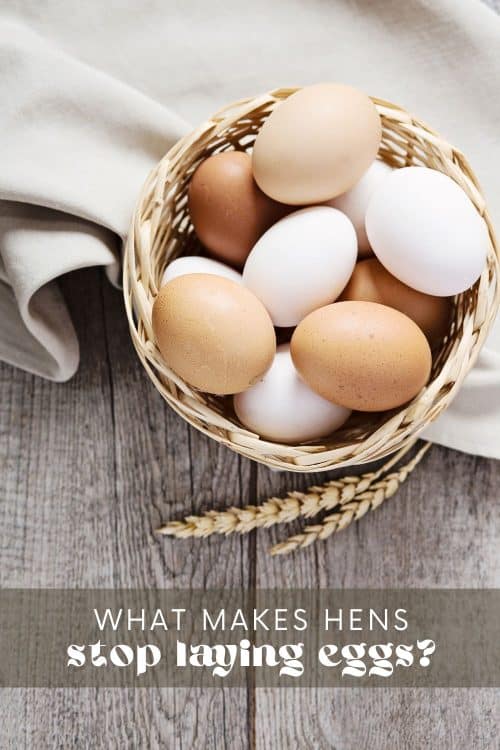
Genetics
Genetics play a significant role in determining how long a hen will lay eggs. Different chicken breeds have been selectively bred for different traits, including egg production. Some breeds have been specifically bred for high egg production and will continue to lay eggs for longer periods of time, while others have been bred for other traits such as meat production and may not lay eggs for as long.
For example, Leghorn hens are known for their high egg production and may continue laying eggs for several years, while Plymouth Rock hens may stop laying eggs earlier. Rhode Island Reds, Leghorns, Sussex hens are considered to be heavy layers, while Buff Orpingtons, Plymouth Rocks, and Cochins are known for their brooding tendencies.
The genetic makeup of a chicken also plays a role in determining the rate at which a hen’s egg production declines as she ages. Some breeds may have a slower decline in egg production and will continue to lay eggs for several years, while others may have a more rapid decline and stop laying eggs earlier.
Another genetic factor that can affect how long a hen will lay eggs is the presence of a “molt gene.” This gene controls when and how often a hen will molt, which is the process of shedding feathers and regrowing them.
Hens with the molt gene will typically molt once a year, and during the molt, they will stop laying eggs for several weeks or months. Hens without this gene may not molt and will continue to lay eggs throughout the year.
In addition, some breeds have been selectively bred to lay eggs all year round, while others may have a natural tendency to stop laying eggs during the winter months.
What is a broody hen?
A broody hen is a hen that has a strong desire to hatch eggs and care for the chicks that hatch from them. This behavior is usually triggered by hormonal changes in the hen’s body, and it is characterized by the hen sitting on her eggs for extended periods of time and refusing to leave the nest.
Broody hens will often stop laying eggs and will become very protective of their nest, sometimes even becoming aggressive towards other hens or people that come near it.
During the broody state, a hen’s body temperature will rise, and she will reduce her food and water intake. Hens that are broody will also puff up their feathers and make clucking noises, this is a sign of their readiness to hatch eggs. Hens that are broody will stay on the nest almost continually, only leaving to eat, drink, and defecate.
The broody state can last for several weeks, and it is triggered by the hormonal changes that occur during the egg-laying cycle. It is a natural behavior that is observed in many bird species, not just chickens.

Looking for more in-depth chicken-keeping information? Take my course, Chicks with Confidence!
Chicks with Confidence is a straight to the point, fact based digital course that walks you through exactly what you need to get raising your baby chicks without breaking the bank or causing you to panic everytime they make a weird sounding peep!
Nutrition
Nutrition plays a crucial role in determining how long a hen will lay eggs. Feeding a good quality feed is essential for maintaining a hen’s overall health, as well as her egg production.
A diet that is deficient in certain nutrients, such as protein, calcium, and phosphorus, can lead to a decline in egg production and a shorter laying period.
Hens need a balanced diet that includes a source of protein, such as soybean meal or fish meal, as well as a source of extra calcium, such as crushed eggshells or oyster shells, to produce strong eggshells. A commercial feed with a guaranteed analysis is the best way to ensure egg-laying hens are getting proper nutrition.
Hens also require adequate amounts of vitamins and minerals, such as vitamin D and E, to maintain proper egg production. Feeding hens a diet that is low in these essential nutrients can lead to a decline in egg production, as well as other health problems.
It’s also important to provide hens with access to clean water at all times, as dehydration can also negatively impact egg production.
For more information on hen nutrition, check out these posts
- What do baby chickens eat?
- Can chickens eat dog food?
- What can’t chickens eat?
- What do chickens eat?
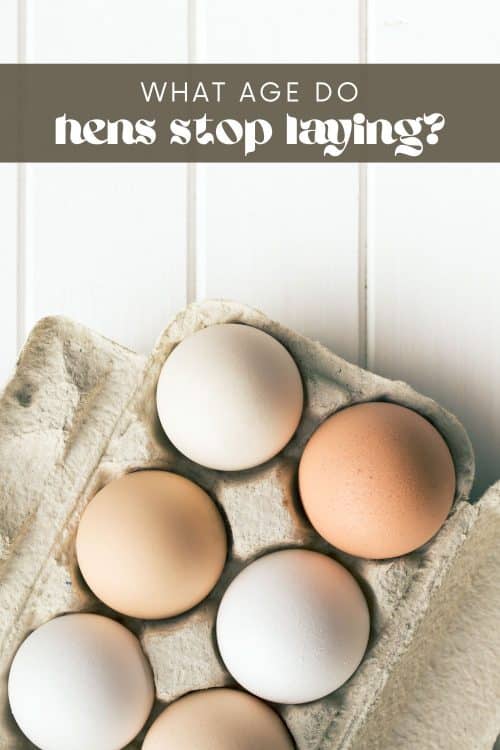
Age
Age plays a significant role in determining how long a hen will lay eggs. As hens age, their egg production will typically decline. The decline in egg production can be gradual or rapid, depending on the breed of chicken and other factors such as genetics, nutrition, and overall health.
For most breeds, egg production peaks at around 18 to 24 months of age, after which it begins to decline. By the time a hen reaches 3 years of age, the number of eggs she produces may have decreased significantly. Some breeds, such as Leghorn, may continue to lay eggs for several years, while others may stop laying eggs earlier.
The decline in egg production as a hen ages can be due to a variety of factors, including hormonal changes, a decline in overall health, and a decrease in the number of functioning ova.
In older hens, the number of ova that are capable of producing eggs decreases, leading to a decline in egg production.
In addition, as a hen ages, her body may not be able to produce the same level of hormones that are necessary for optimal egg production, leading to a decline in egg production.
It’s important to note that the age at which a hen stops laying eggs can also be influenced by other factors, such as genetics, nutrition, and overall health.
A hen that is genetically predisposed to stop laying eggs earlier may do so even if she is well-nourished and in good health, while a hen that is genetically predisposed to lay eggs for a longer period of time may continue to do so as an old hen, even if her health is declining.
Lighting
Light plays a significant role in determining how long a hen will lay eggs. Hens require a certain amount of daylight hours to maintain optimal egg production, and a lack of light can lead to a decline in egg production and a shorter laying period.
A common misconception is that hens will stop laying in cold weather. It’s not actually the temperature that determines when a hen lays, but the day length. Since there are shorter days in the winter, hens lay less during this time.
Mature hens need a certain amount of light to stimulate the production of hormones that are necessary for optimal egg production. Specifically, hens require 14 to 16 hours of daylight per day to maintain optimal egg production.
If a hen does not receive enough light, her body will not produce the necessary hormones, which can lead to a decline in egg production. Additionally, a lack of light can also affect the timing of egg production.
During the winter months, when there is less natural light, chicken keepers may need to provide additional artificial lighting to their hens to maintain optimal egg production. This is particularly important for commercial egg production where farmers are trying to maintain a consistent supply of eggs throughout the year.
In addition to the amount of light, the quality of the supplemental light is also important. Hens require natural light, and it is believed that hens exposed to natural light have better egg production and egg quality compared to hens exposed to artificial light.
It’s also worth noting that the circadian rhythm, or the internal body clock, of hens is also affected by light. Hens that are exposed to light at the wrong time of day may experience disruptions in their internal body clock, which can lead to decreased egg production.
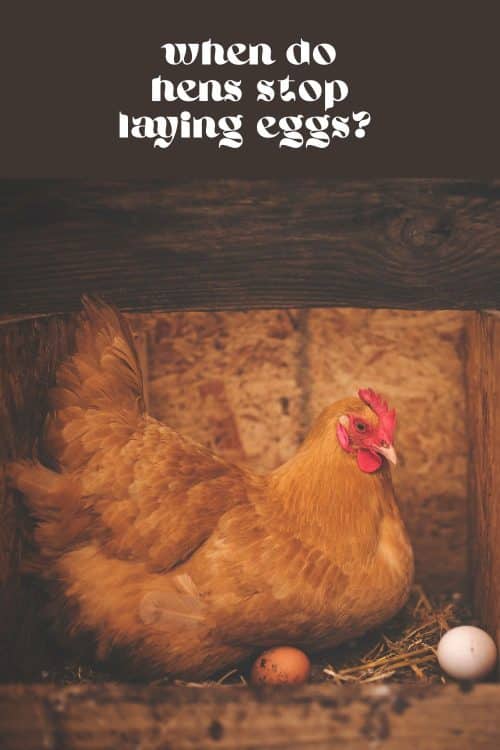
Stress
Stress can have a significant impact on how long a hen will lay eggs. Stress can disrupt the hormonal balance in a hen’s body, leading to a decline in egg production and a shorter laying period.
Stress can be caused by a variety of factors, such as changes in the environment, overcrowding, lack of access to food and water, and exposure to predators. When a hen is stressed, her body releases cortisol, a hormone that can disrupt the normal functioning of the reproductive system and lead to a decline in egg production.
Additionally, stress can also disrupt the timing of egg production. Hens that are stressed may not lay eggs as regularly as unstressed hens, which can lead to a shorter laying period. Stress can make healthy chickens have a sudden drop in egg production. The good news is that monitoring this can help you track your hens health.
Hens that are kept in overcrowded or unsanitary conditions, or hens that are exposed to predators, are more likely to experience stress, which can lead to a decline in egg production and a shorter laying period.
It’s also worth noting that stress can affect the quality of eggs that a hen produces. Hens that are stressed may produce eggs with thinner shells, which can make them more prone to breaking. Additionally, stress can also lead to a decline in the nutritional quality of eggs.
In order to minimize the effects of stress on egg production, it is important to provide hens with a comfortable and healthy environment. This includes:
- providing plenty of space,
- clean and dry bedding,
- access to food and water,
- and protection from predators.
Additionally, farmers should be aware of the signs of stress in their hens and take steps to minimize stress in the flock.

Chicks with Confidence is a straight to the point, fact based digital course that walks you through exactly what you need to get raising your baby chicks without breaking the bank or causing you to panic everytime they make a weird sounding peep!
Looking for more in-depth chicken-keeping information? Take my course, Chicks with Confidence!
Health
Health can have a significant impact on how long a hen will lay eggs. Hens that are in good health will typically lay eggs for a longer period of time compared to hens that are not in good health.
Hens that are not in good health may experience a decline in egg production and a shorter laying period due to a variety of factors such as disease, parasites, and poor nutrition.
Hens that are infected with diseases such as avian influenza, fowlpox, and salmonella can experience a decline in egg production and a shorter laying period. Similarly, a sick hen that is infested with parasites, such as mites and lice, can also experience a decline in egg production and a shorter laying period.
Good nutrition is also an important factor in maintaining the health of hens and their ability to lay eggs. Hens that are not receiving the proper nutrients may experience a decline in egg production and a shorter laying period. For example, hens that are not getting enough calcium may experience weak or thin eggshells, leading to a decline in egg production and a shorter laying period.
It’s also worth noting that the genetic makeup of a hen can also impact her health and the length of her laying period. Hens that are genetically predisposed to certain health conditions may experience egg production decreases and a shorter laying period.
In order to maintain a healthy hen and ensure a longer laying period, it is important to provide them with a healthy diet, proper veterinary care, and a clean and comfortable living environment. This includes regular veterinary check-ups, proper vaccination, and regular cleaning and disinfection of the living quarters.
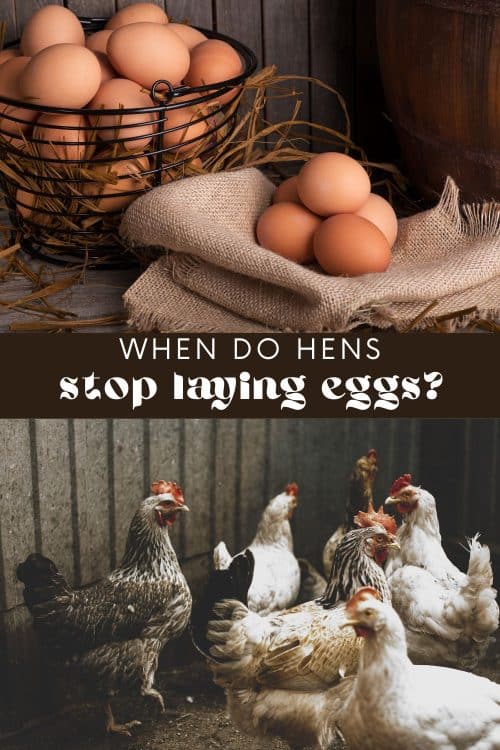
How Does Egg Quality Decrease Over Time?
Egg quality can decrease over time as chickens age. Several factors contribute to the decline in egg quality as hens get older:
- Size: One noticeable change is that eggs may become smaller as hens age. This is because the reproductive system of older hens may not produce eggs as large as when they were younger.
- Shell Quality: The quality of the eggshell may deteriorate with age. Older hens may produce eggs with thinner shells, making them more susceptible to cracking during laying or handling. This can result in a higher rate of damaged eggs.
- Shell Texture: The texture of the eggshell may change, becoming rougher or more porous in older hens. This can affect the appearance of the eggs and make them more challenging to clean.
- Yolk Color: The yolk color of eggs laid by older hens may become paler compared to the vibrant orange or yellow yolks produced by younger hens. This change in yolk color is often due to variations in the hen’s diet and metabolism.
- Egg Whites: The consistency and texture of the egg whites (albumen) may change over time. In older eggs, the egg whites may become more watery or less firm, making them less suitable for certain culinary applications.
- Fertility: In the case of fertile eggs, the fertility rate may decrease in eggs laid by older hens. This can affect the success rate of hatching if you intend to use the eggs for incubation.
- Egg Production: As hens age, their overall egg production may decline. While younger hens are more likely to lay eggs consistently, older hens may have fewer productive days.
It’s important to note that while egg quality may decline as hens age, the eggs are still perfectly safe to eat.
Summary of Factors that Influence How Long Chickens Lay Eggs:
For backyard chicken owners experiencing a lack of eggs, make sure you have met all these needs and troubleshoot from there. Here is a summary of the most important factors we discussed in the article:
- Genetics: Some breeds of chickens are known to be better layers than others.
- Nutrition: A diet that is balanced and provides enough protein, calcium, and other essential nutrients is important for egg production.
- Age: Hens typically begin to lay eggs at around 18-24 weeks of age, and their egg-laying capability will decline as they get older.
- Light: Hens need a certain amount of daylight each day to produce eggs, so lack of light can affect egg production.
- Stress: Hens that are stressed or frightened may stop laying eggs.
- Health: Hens that are suffering from disease or parasite infestations may stop laying eggs.
To mitigate the effects of aging on egg quality, it’s essential to provide proper care and nutrition to your chickens throughout their lives. Additionally, regularly collecting eggs promptly and ensuring that hens have access to clean water and a balanced diet can help maintain better egg quality for a more extended period.

Looking for more in-depth chicken-keeping information? Take my course, Chicks with Confidence!
Chicks with Confidence is a straight to the point, fact based digital course that walks you through exactly what you need to get raising your baby chicks without breaking the bank or causing you to panic everytime they make a weird sounding peep!
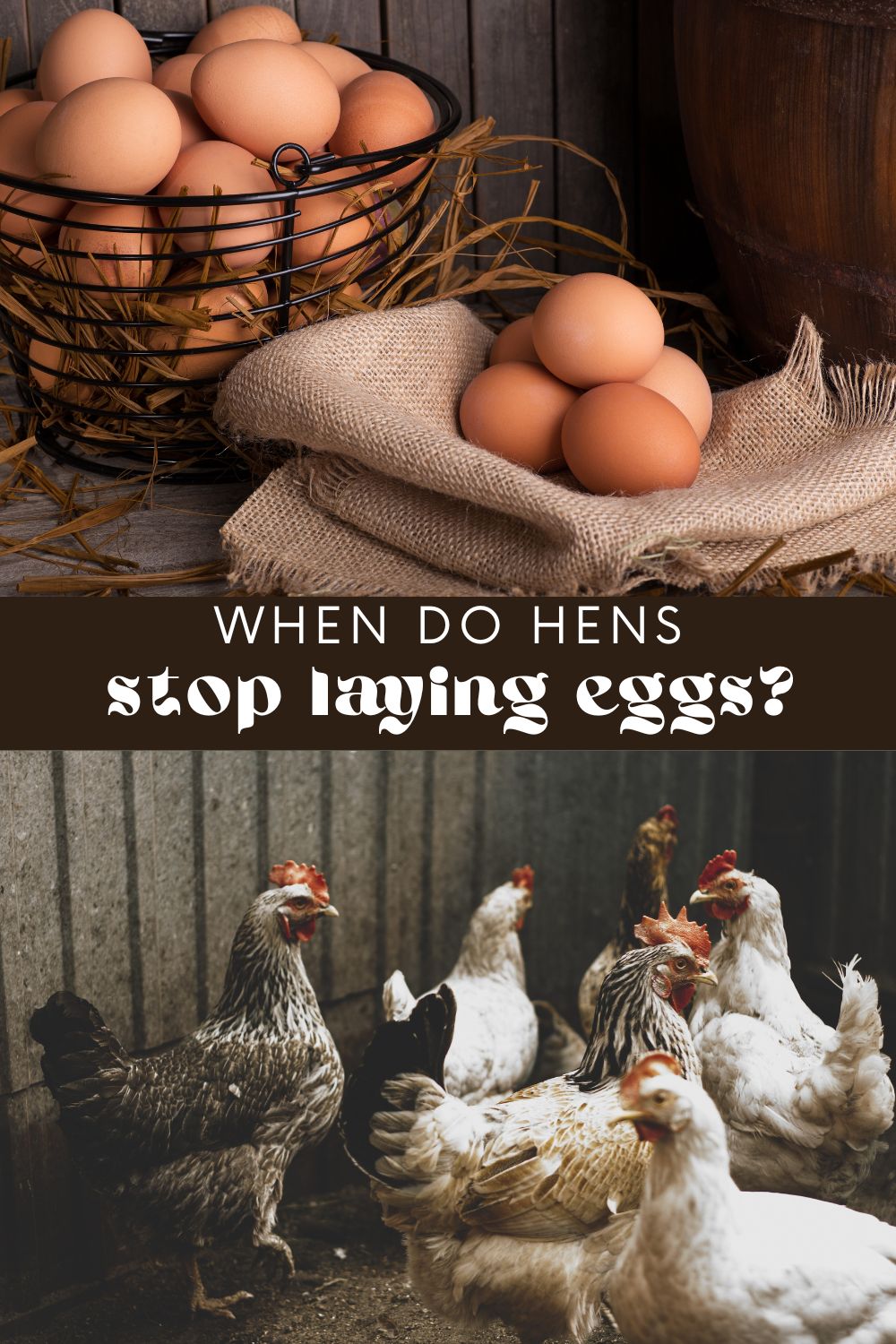
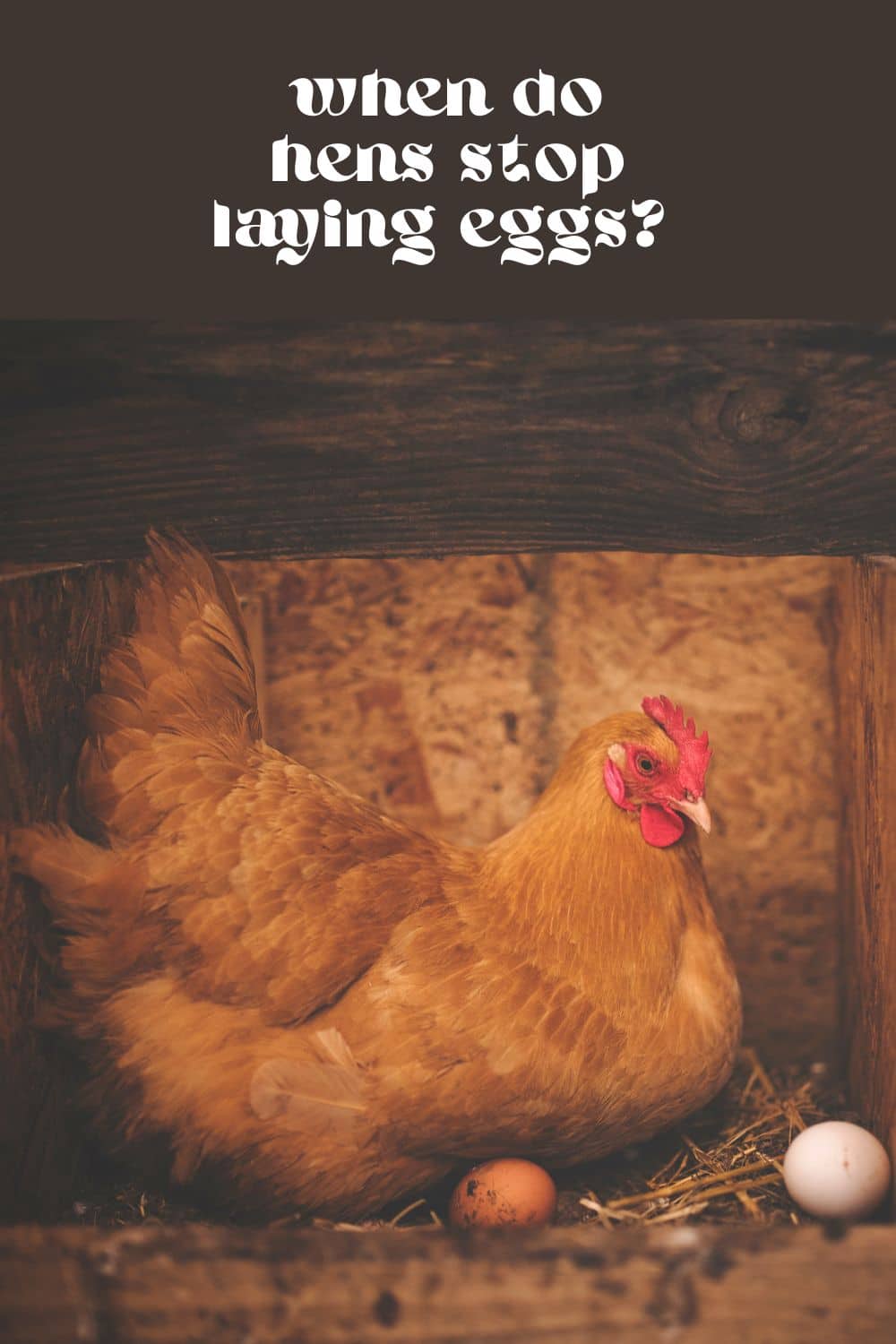
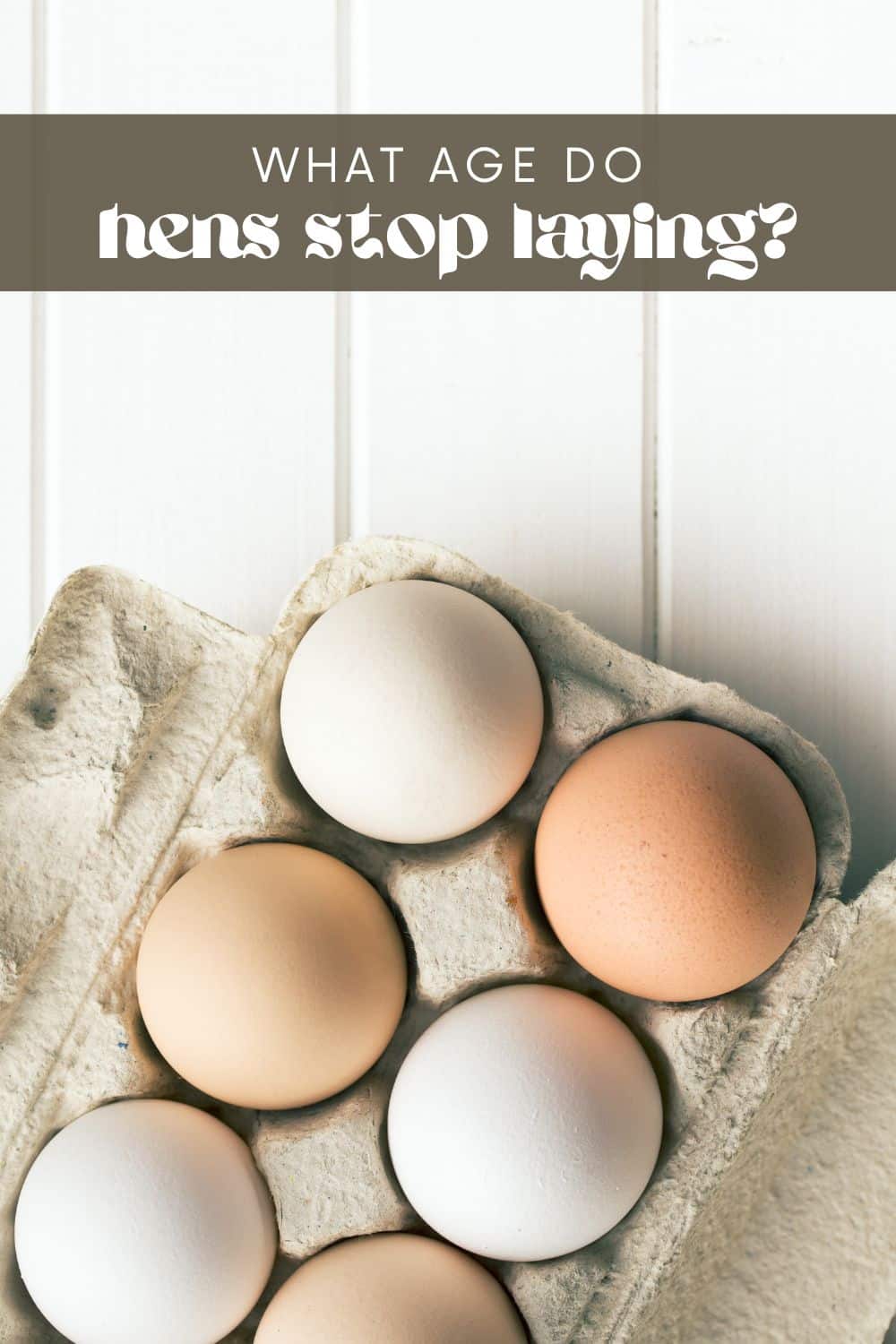
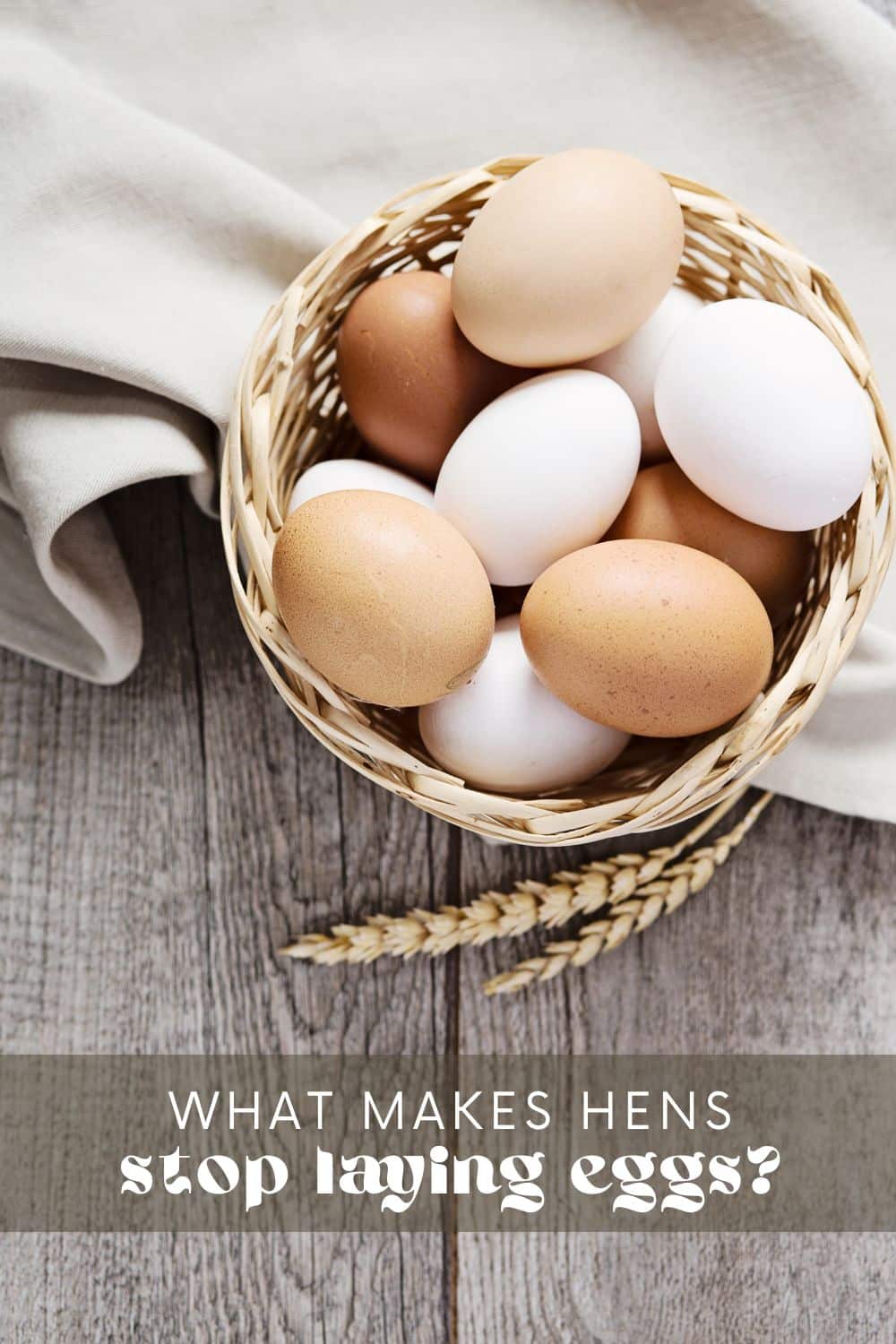





Leave a Reply